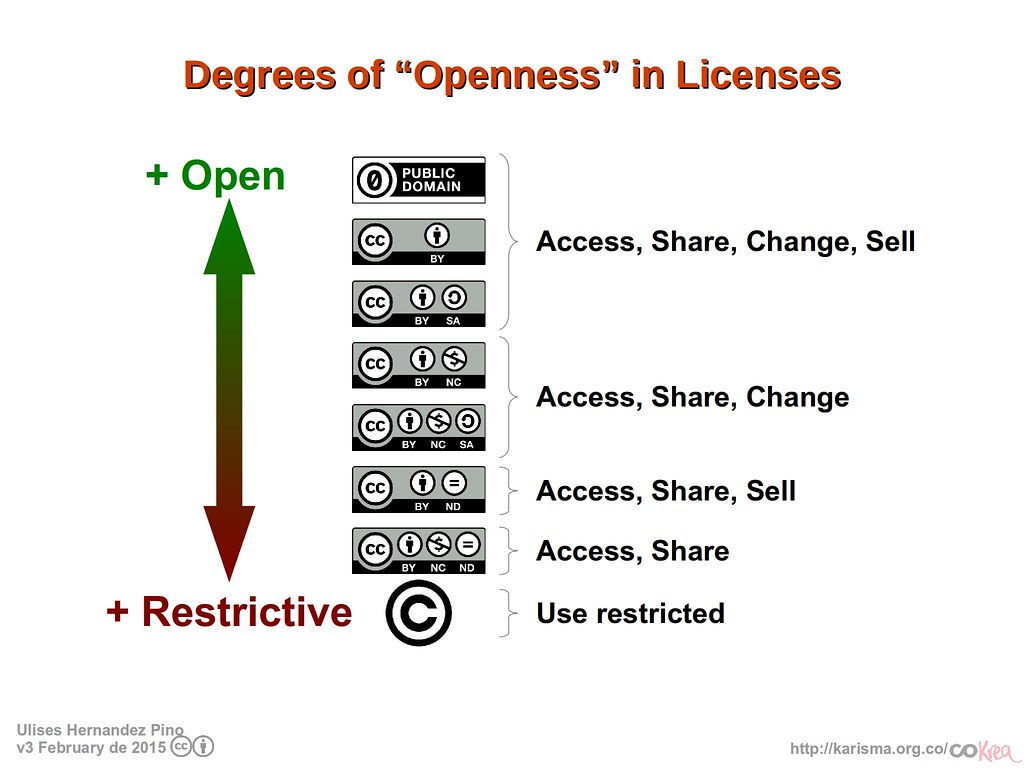This month I had a chat with first-semester, English language teacher trainers about e-portfolios...
[archiveorg Eportfolios_20170928 width=640 height=480 frameborder=0 webkitallowfullscreen=true mozallowfullscreen=true]
https://sway.com/s/LVHO109GkBhkysjQ/embed
Tuesday, September 26, 2017
Tuesday, September 19, 2017
Openness Matters (#OpenEdMOOC)
 Jenny Connected asks,
Jenny Connected asks,What are your thoughts on what appears to be a course about cMOOC principles being offered as an xMOOC?
I will discuss my thoughts by addressing a few comments made by Jenny Connected...
I don't think George and David have claimed that this is a cMOOC have they... It may be that George and David are simply making use of a ready made platform for structuring their course, in the same way that CCK08 used Moodle, but that the course activity will be distributed across blogs, twitter, Facebook and other social media sites.
This seems to confirm that this course is designed to be some combination of both and xMOOC and a cMOOC, whether explicitly stated or not. I agree that any course offered through edX can potentially be both an xMOOC and a cMOOC, but am a little surprised to see them listed as instructors in an edX course, that's all - no value judgment, just saying.
I don't think cMOOC principles necessarily fully equate with open education... it might be one of the reasons I feel increasingly uneasy about open education.
I am not sure I follow... what MOOC principles fail to align with open education? And which of them causes one to feel "increasingly uneasy"? I'm thinking of the following MOOC principles in particular: meaningful, engaging, measurable, accessible, and scalable (Drake, O'Hare, & Seeman, 2015). I view these five principles as iterative and reciprocal: engagement depends on accessibility, learning analytics depends on scalability, etc.
This course is being offered on a platform that is usually associated with xMOOCs, but this doesn't mean that it is being offered as an xMOOC.
I agree, but it also does not mean that it is not being offered as an xMOOC. And since edX courses are usually associated with xMOOCs... Again, when I imagine a MOOC being offered by Wiley and Siemens, the last place I think about is edX (or any other LMS). I doubt edX is really needed to market such a course given the following both educators have.
I'm not sure who owns the data that will be generated on the EdX site...
Good point. It's also not apparent who will be generating most of the content and how, when, and where it will be delivered, furthering the ambiguity between where the course will ultimately fall along an xMOOC-cMOOC continuum. For instance, will I gravitate towards the edX platform, elearnspace, or somewhere else? Potentially each with their own content licensing agreeement? Because the course is being offered in edX, however, it seems possible that some amount of content will remain under edX's own licensing agreement (along with participant interactions?), which I assume differs from the freedoms offered with a Creative Commons license?
I have nothing against an xMOOC nor a cMOOC (or anything in between); both easily can coexist based on the type of course, instructors, and learning preferences of the participants. I can see why offering a MOOC in edX might reach more individuals (than say a private Moodle website) and at the same time, allow those who need it, a certification for having completed the course.
But openness matters in a MOOC. The degree a course remains open influences how participants engage with both content and each other. The technologies that are used, when and where engagement occurs, and types of social (human) interactions that emerge collectively evolve based on how open a course ends up being. A simple example is comparing those seeking a certificate of completion with those who are not. Usually certificates are awarded based on a single set of objectives that may or may not be the same set of objectives one would normally choose if obtaining a certificate were not desirable. Meeting one set of objectives in order to get a credential can influence the technologies used, when and where engagement occurs, and the types of social interactions that are required. Thus, because one seeks certification, the course becomes less open (i.e., contrived). Thus, openness matters to the degree one recognizes personal learning objectives (or outcomes) that were either predetermined or emergent throughout the learning process.
The best kinds of MOOCs are those where participants themselves create most of the content and discussions. Instructors add value when they are able to navigate and curate emerging content so that it is becomes more easily obtained and understood by all. A MOOC can have starting and ending dates, but the resulting interactions and outcomes from the MOOC remain as a digital "footprint" for all to witness - an artifact that could also be contributed to afterwards as well. This degree of openness and the desire to leave something behind can motivate one to participate (to the degree that individual objectives are recognizable), but becomes a challenge anytime a learning management system (LMS) becomes a mandatory part of the learning design - not saying this is the case here with edX. This leads me to the following question:
Is it possible to receive a credential (credits, certificate, badge, etc.) for having completed a MOOC without using an LMS?
The reality is that some prefer using an LMS while others do not. MOOC designers will need to account for this by determining how open the course could potentially be.
This is what I'll be reflecting on as I take this course: how the degree of openness impacts decision-making processes around licensing, open educational resources (OERs), and learning analytics.
Tuesday, September 12, 2017
#OpenEdMOOC Opens in October

Yesterday, I learned about the MOOC, Introduction to Open Education course, per Jenny Connected (via Twitter) - #OpenEdMOOC. With most MOOCs that I have taken part in, I am more interested in what the participants of the MOOC have to say than I am in whether or not I achieve stated objectives. Clearly, the instructors have a following for a reason but I have often learned more from the concatenation of MOOCs than from any one-to-many, broadcast spray of information intended to inform a public audience.
Another thing that caught my attention was that this course - apparently about cMOOC principles - was being offered as an xMOOC.
Will the way the course is being delivered align with the learning objectives of the course?
I am also curious whether or not I will lose interest in the course like I am known to do when taking a MOOC of this kind. From the scant amount of information found in the syllabus, there is little in the way of essential questions that foster critical or creative thought that might help in this regard. Perhaps the idea is to allow critical inquiry to emerge over time, which is also an approach.
As always, I am more interested in the design and delivery of the course and how participants interact than anything else. The MOOC experience has always been a metaexperience for me, and one that invariably trickles over into my own teaching practice (for better or worse). Hopefully there is room for Wiley and Siemens (the course instructors) to share some insights along the way into how they chose to design and deliver the course in this way, and how MOOCs might live in both formal and informal educational contexts.
Photo Attribution
#OpenEdMOOC Tweets
!function(d,s,id){var js,fjs=d.getElementsByTagName(s)[0],p=/^http:/.test(d.location)?'http':'https';if(!d.getElementById(id)){js=d.createElement(s);js.id=id;js.src=p+"://platform.twitter.com/widgets.js";fjs.parentNode.insertBefore(js,fjs);}}(document,"script","twitter-wjs");
Subscribe to:
Posts (Atom)